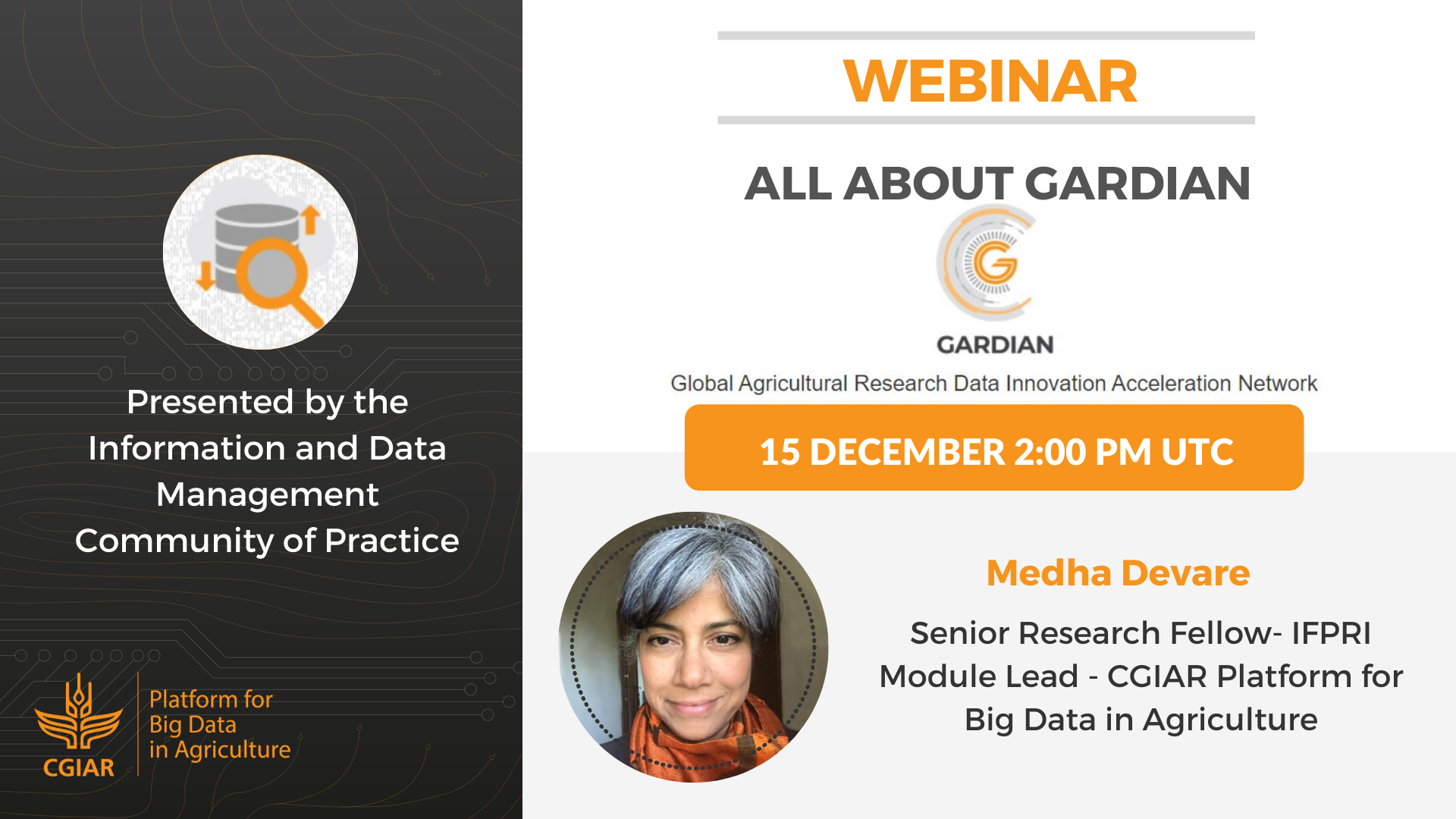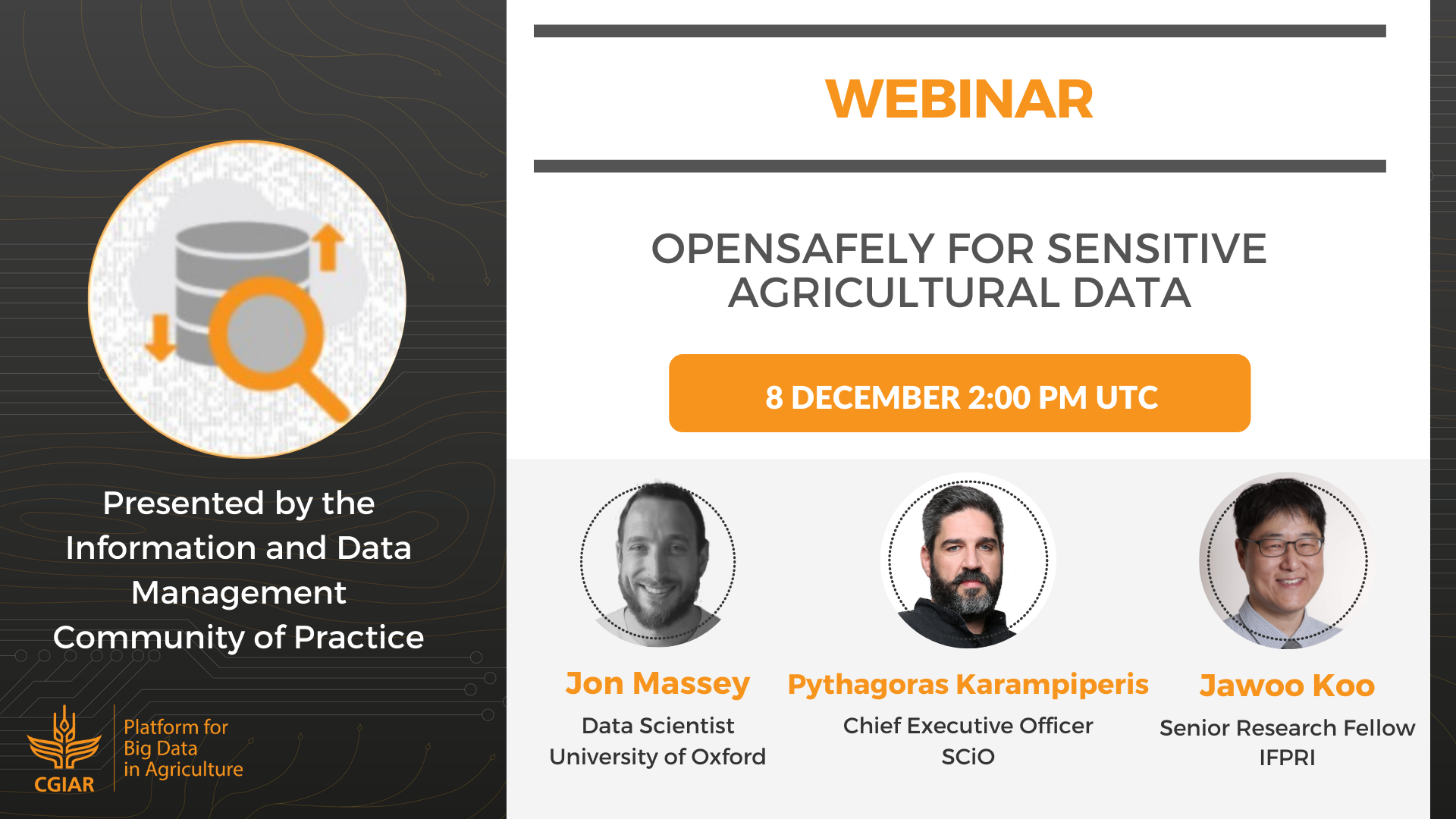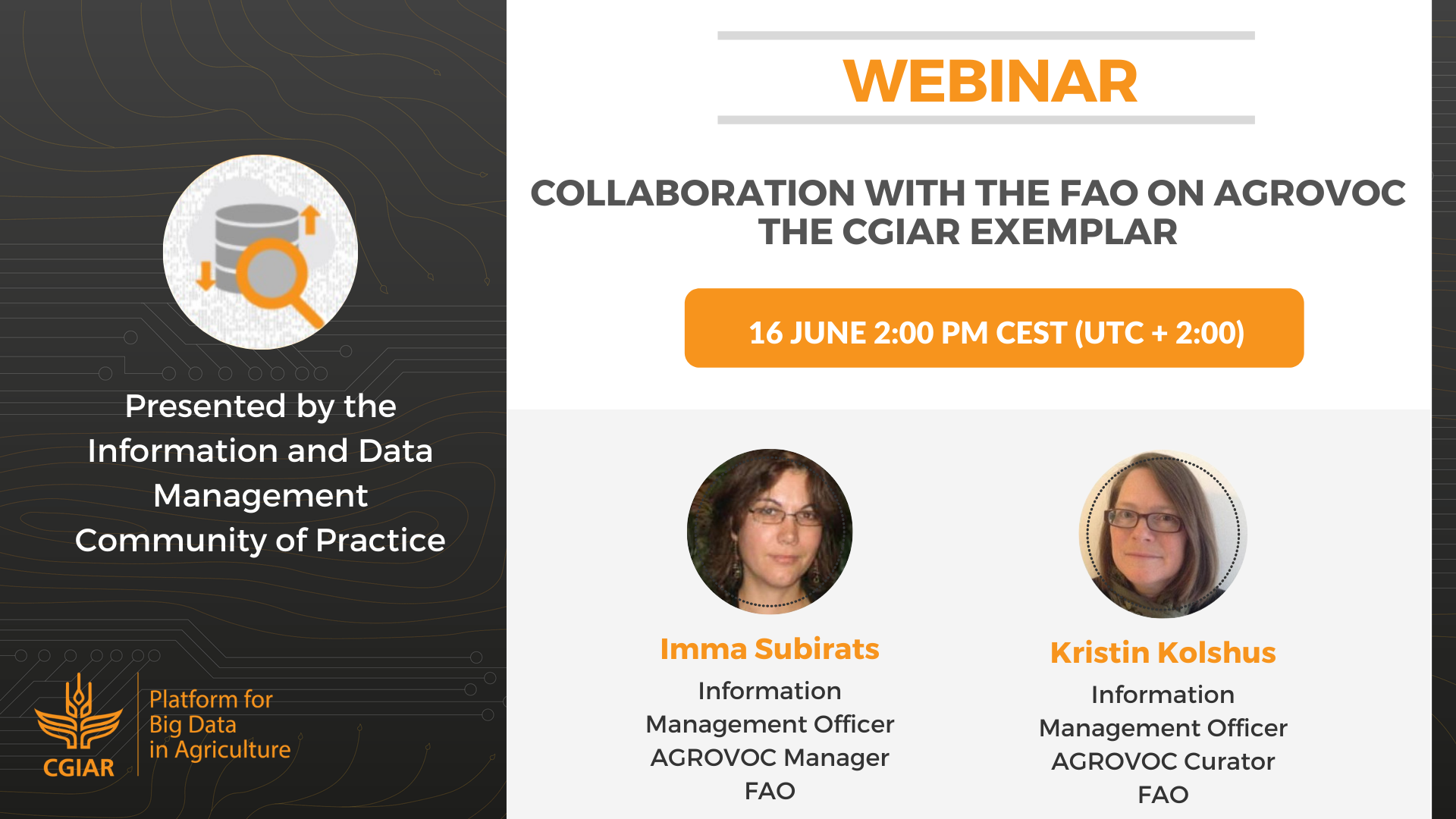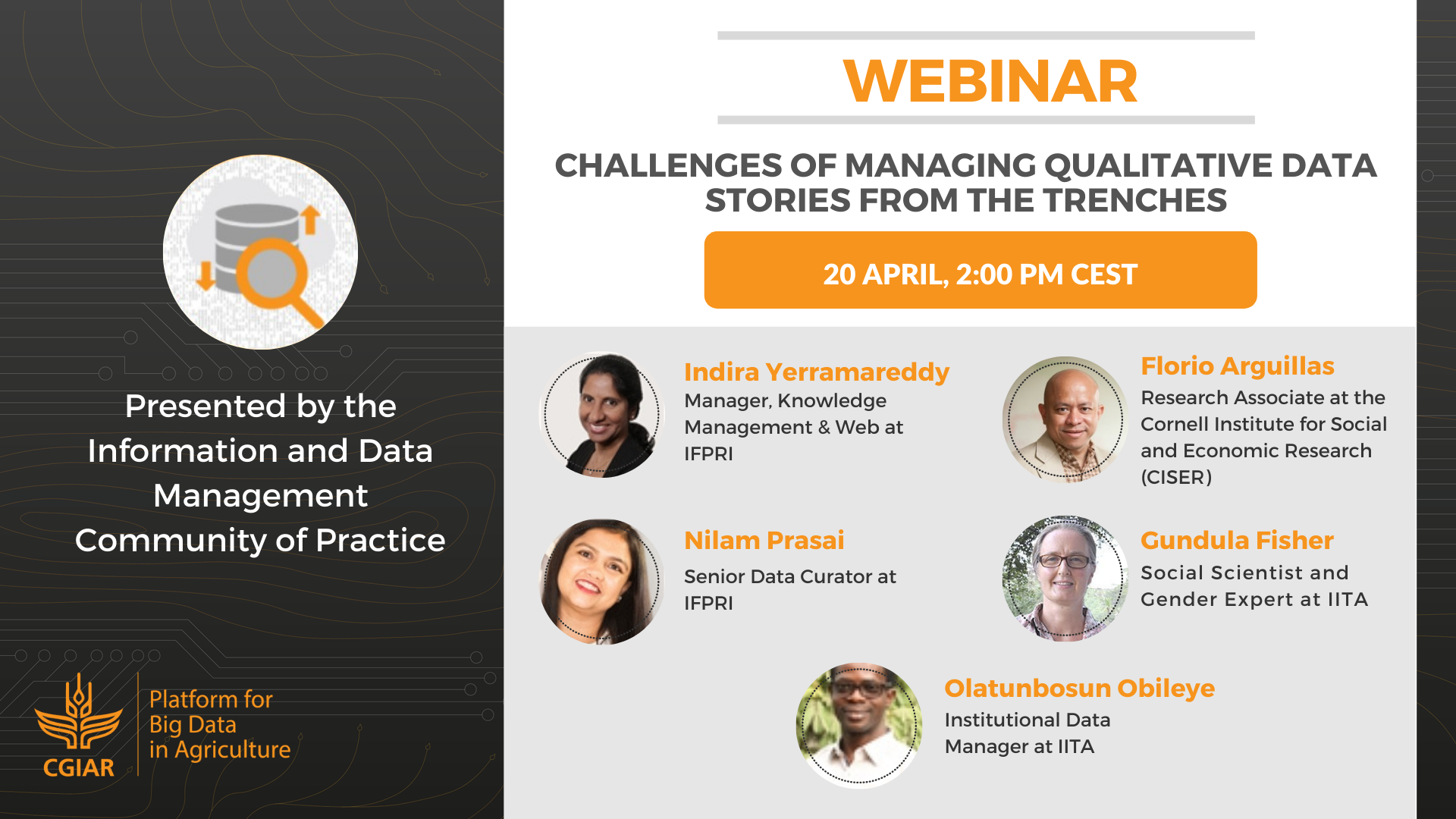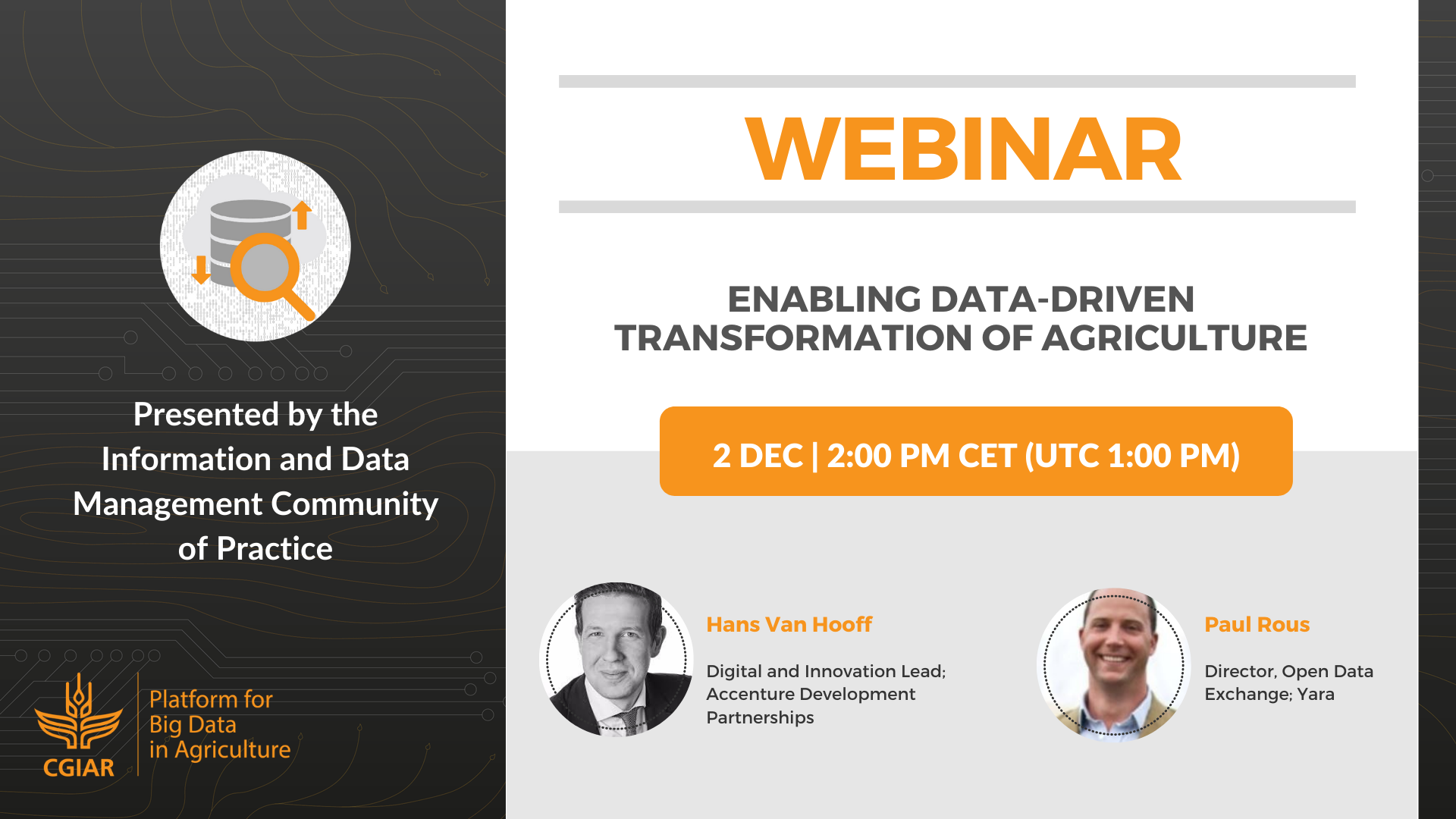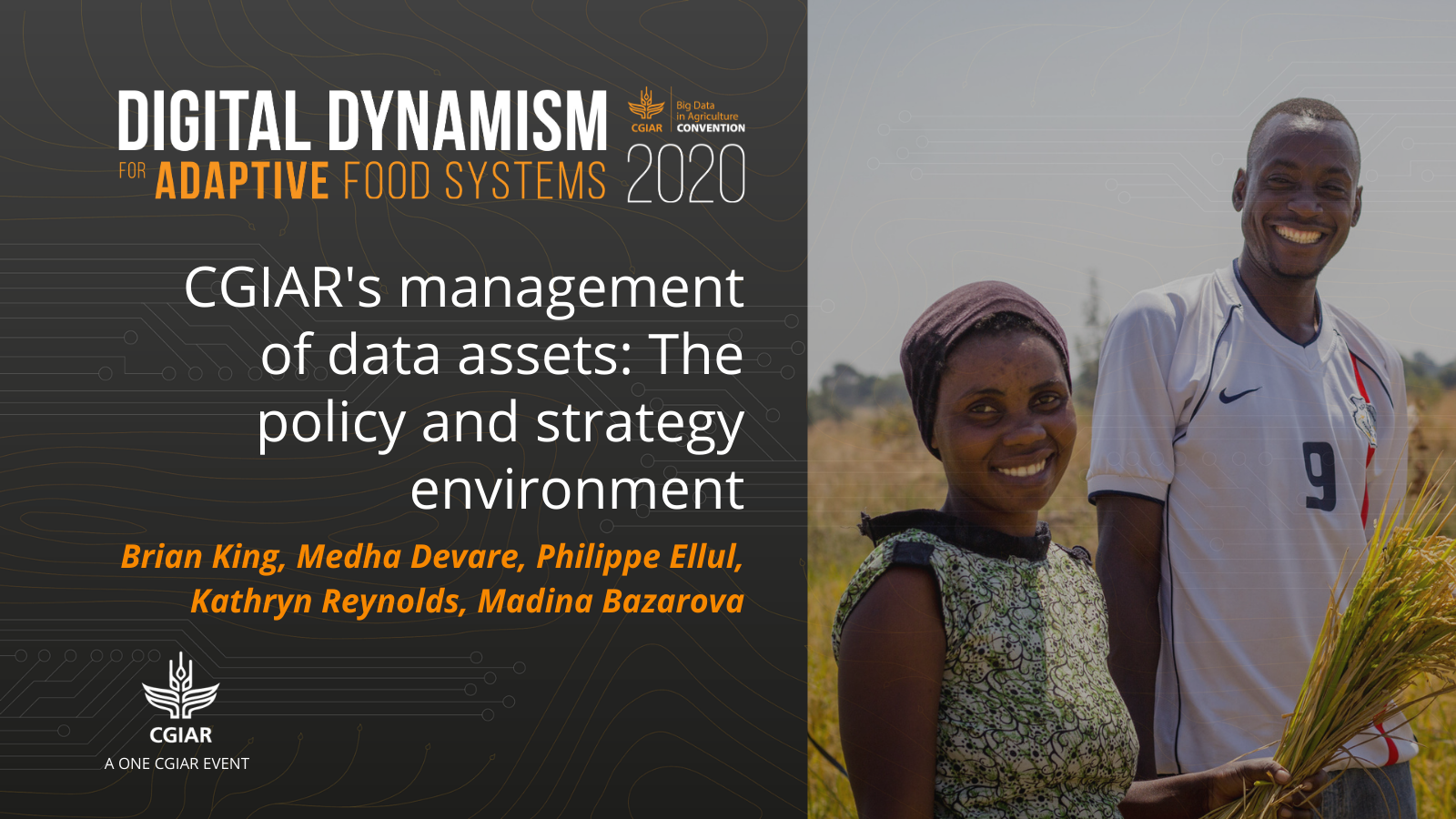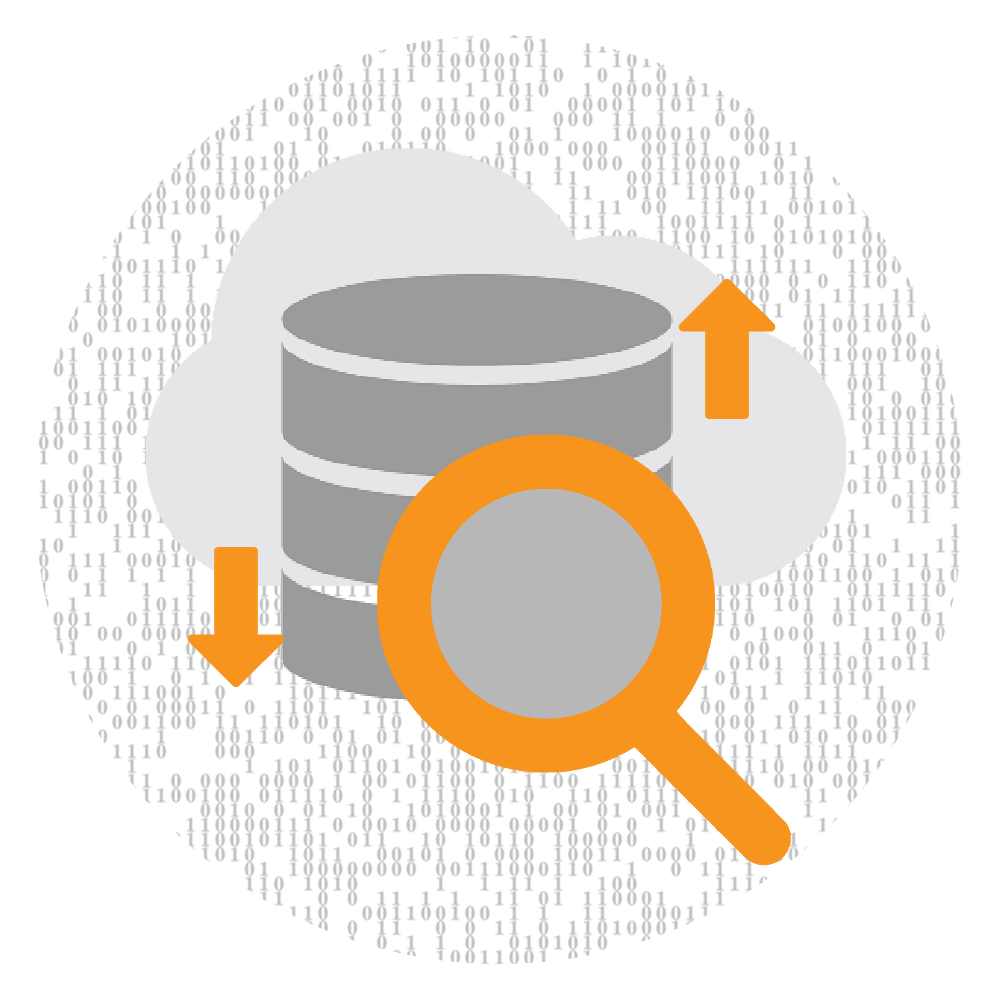
Information and Data Management
Community of PracticeWelcome!
The CGIAR Open Access and Data Management Policy was ratified by all CGIAR Centers in November 2013, a commitment by CGIAR to the widespread diffusion and reuse of its research and development activities as international public goods. The task of managing CGIAR research outputs in conformance with the Policy has been a key responsibility of Center information specialists and data managers. As part of the Open Access, Open Data Initiative (2014 – 2016) and the Big Data Platform’s Organize Module (2017 to present), these information and data managers organized themselves into the Data Management Task Force (DMTF) and the Open Access Working Group (OAWG). In November 2018 members of these groups voted to consolidate into the Information and Data Management Community of Practice (also known as the IDM CoP).
The CoP works through its Working Groups to develop and implement common standards, tools, and approaches, and already engages with external entities on a variety of fronts (including but not limited to Harvard University for Dataverse repository concerns; Earlham Institute for the COPO data annotation tool; FAO, GODAN, RDA, and other organizations on agrisementic standards). The CoP works to enhance capacity and culture change around data management at Centers, and helps the CGIAR community stay current in a rapidly changing data and publications landscape.
Over the past five years, members of the IDM CoP have worked together to tackle cultural and technical challenges to enable CGIAR’s data assets to be increasingly open as well as FAIR (Findable, Accessible, Interoperable, and Reusable). We welcome those beyond CGIAR who would like to join us to enhance cross-learning on all sides, to work collaboratively in implementing common standards and approaches towards open and FAIR data, and to leverage opportunities for broader linkages and exchange.
Engage with the Community
BE INFORMED
Tune in to the latest CoP updates! Please see previous newsletters for more information and to subscribe.
ENGAGE
Interact with community members via our LinkedIn group.
Working Groups
Metadata Working Group
The Metadata Working Group is composed of data managers and information specialists and meets about once every two months. The working group aims at enhancing the interoperability of CGIAR open access repositories (both publications and data) by developing a common metadata schema and guidelines. The CG Core and its associated guidelines (https://github.com/AgriculturalSemantics/cg-core) has been openly published online and is available for all to use.
Repository Working Group
The Repository Working Group addresses issues regarding data and information repository management. Members identify solutions through internal discussion or coordination with external partners or service providers and share best practices and experiences. The group meets monthly.
Ontology Working Group
The Ontology Working Group works to ensure collaboration across ontology efforts and use within CGIAR, and links to efforts outside the System. This group acts as an advisory group for the Ontologies CoP by monitoring the progress of thematic groups like those overseeing the development of the Socioeconomic, Fish and Plant Phenotypes ontologies. Members discuss key topics and issues around ontology gap filling and ontology-supported data annotation. Relevant topics are then brought to the attention of the Ontologies CoP and other working groups within the IDM CoP.
Open Access Working Group
The Open Access Working Group serves as a forum for issues related to Open Access (OA) and scholarly publishing. Members work together to develop educational and promotional material on OA, advocate for stable OA funding, and help with reporting on the impact of OA.
Globus Working Group
This working group seeks to bring together a community of people working on the research life cycle to use the APIs, tools and services provided by Globus for secure data sharing and more effective and efficient data management. Globus is a non-profit service managed by the University of Chicago to provide unified access to research data across all systems (high performance computing cluster, laptop, in-cloud or on-premise storage) using any existing identity. Globus allows researchers to efficiently, securely, and reliably transfer data directly between systems, be they separated by an office wall or an ocean.
Meeting notes and key outputs are made available on group sites maintained through the Organize Module and via GitHub. A well-attended CoP webinar series is focused on capacity enhancement; there were 8 webinars in 2019, attended by 35 people on average. There is one annual face to face meeting; in 2017, 2018 and 2019 this was held in conjunction with the Big Data Convention. These meetings are attended by an average of around 40 members representing all Centers. The 2019 agenda and meeting report are available, along with those of past meetings.
News
Resources
Webinars
2021
2020
2019
- Using CG Core, the CGIAR Metadata Schema
- Semantic Annotation of Images in the FAIR Data Era
- GARDIAN FAIR Application & Guidelines
- Can machine learning technologies be useful to create or complete ontologies in agriculture?
- What makes an Ontology a reference resource for data annotation?
- Managing research data with Globus
2018
- Responsible Data Guidelines and Key Concepts on handling of PII
- Open data, privacy protection & ethics clearance: tensions in a fragmented compliance landscape
- The 100 questions activity within the Big Data in Agriculture Platform: can we define a common core for household survey instruments?
- Describing community data – consequences & opportunities for knowledge workers
- Text-Mining and Semantic Resources for Agriculture & Food Science
- BMGF OA Policy
- FAIR Data Stewardship
- Rural Household Multiple Indicator Survey (RHoMIS)
Documents
- 2021 Work Plan – Detailed description of expected outcomes and deliverables for 2021
Interested in joining our community of practice?
Sign up to our mailing list for community news and updates.

